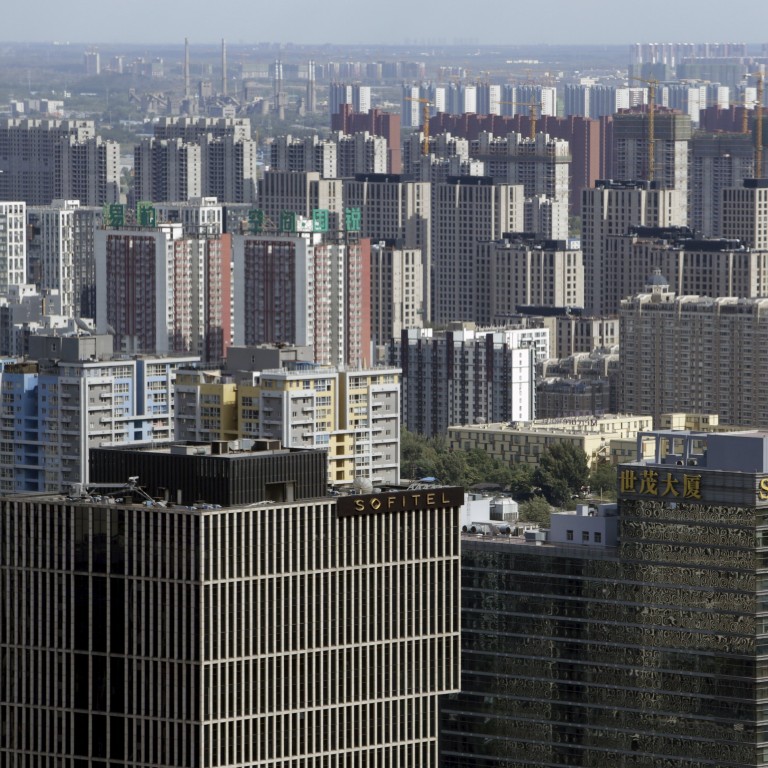
Golden September disappoints, what to expect from China's housing market?
Hopes banked on 'silver October' to keep annual target and nation's economic growth on track
Property sales in China this month, especially in tier-1 cities, disappointed wide expectations for a traditional "golden September", adding to downward risks for the world's second-largest economy.
But hope remains for a "silver October" that developers will still be able to hit their annual sales targets.
Should sales continue to fall, economists expect the authorities to step up monetary and fiscal policy support in the next few months to ensure a full-year growth target of about 7 per cent will be met.
Beijing sold 5,612 new homes, or 643,100 sq metres, this month as of September 27, down 27 per cent and 22 per cent, respectively, from last month.
However, prices continued to rise, by 12 per cent to 31,047 yuan per square metre, according to data from Yahao Real Estate Selling & Consulting Solution Agency.
Apart from dwindling supply - new projects fell to 29 from 36 a month earlier - the agency also said "the sudden stock market fall reduced home buying power and hit property transactions in the second half".
In Shenzhen, new projects failed to post the same stellar performance seen in April. For example, MTR Corp sold about 97 per cent of its 641 flats offered at the Tiara project above a metro station at an average of 36,000 yuan per square metre in April.
However, the sell-through rate was much lower last weekend when it launched new units at an average of 43,000 yuan per square metre.
Strong sales in the past few months spurred by policy relaxation might have exhausted pent-up demand, some analysts said, pointing to the need for developers to cut prices in order to stimulate transactions.
Such a trend, if confirmed by official figures to be announced by the National Bureau of Statistics on October 19, will increase downside risks to the broader economy, as real estate investment directly accounts for about 15 per cent of the nation's gross domestic product and affects more than 40 industries.
Barclays economist Chang Jian lists oversupply in the housing market as one of the three major headwinds for the economy in the medium term - the others being excess capacity in industries and high debts, especially among local governments.
"The property sector remains the biggest risk factor with a strong drag on overall investment," Chang said. "That said, we look for a multiyear adjustment of the housing market nationwide despite improving sales and prices in tier-1 and 2 cities."
To sustain housing sales recovery, some local governments in recent months have made it easier for buyers to access their housing provident funds, which offer loans at much lower rates than commercial banks.
Such moves would not be of any substantial help, but positive signals would lift market sentiment, analysts said.
Economists also expect the central bank to cut interest rates, probably in the fourth quarter, for the fifth time this year.
Although seen unlikely this year, the central government still has the option to scrap housing purchase restrictions in tier-1 cities Beijing, Shanghai, Shenzhen and Guangzhou.

